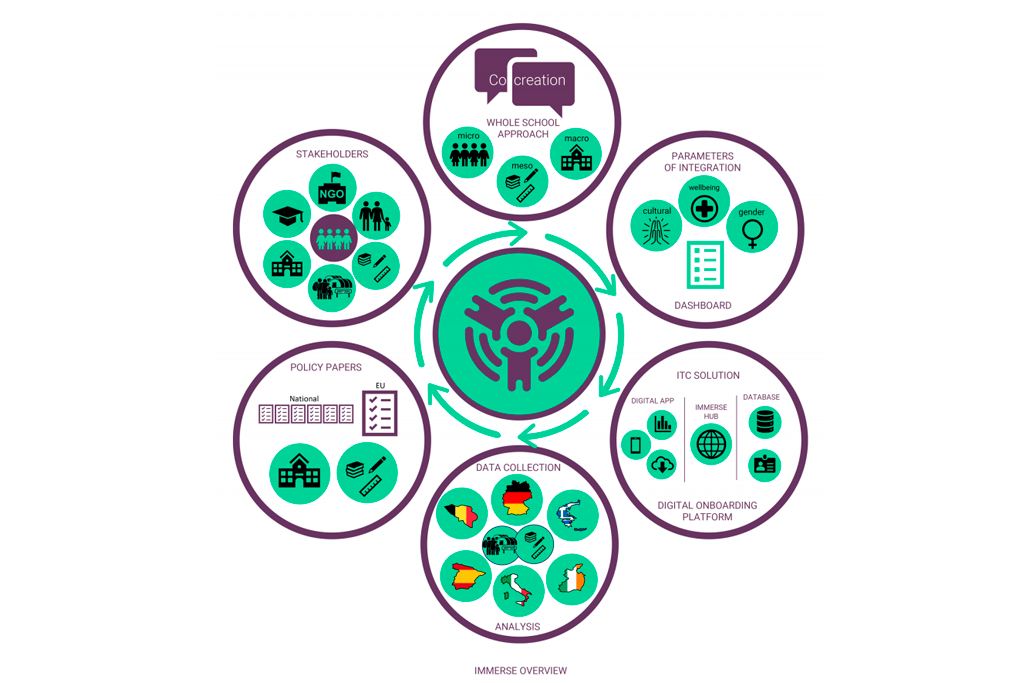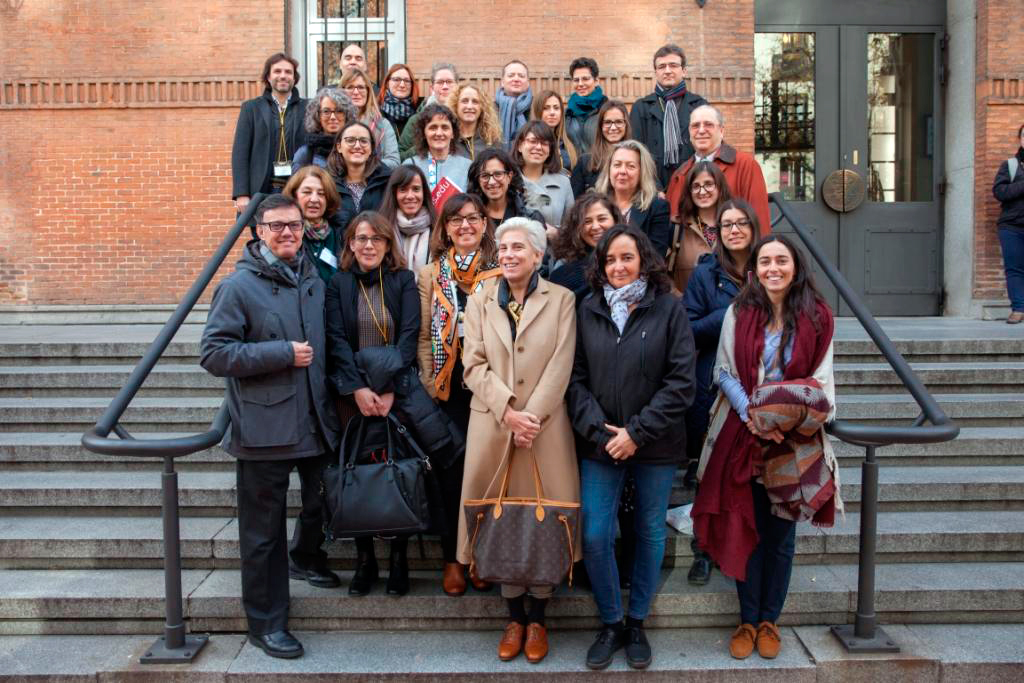Description
This project continues the work of the SIRIUS Policy network which is the world’s leading network doing policy advocacy on migrant education. The Network uses a theory of change approach and its model is based on network development, knowledge dissemination, policy engagement and policy reform. This part of the project lasts from September 2017 to December 2021, and involves 17 countries. The overall objective of SIRIUS is to feed the best evidence and practice into the major education policy debates by mobilising mainstream migration and education activities and building the capacity of migrant and grassroots education initiatives. The specific objectives are to analyse and co-create knowledge on the main challenges and policy approaches for inclusive education for children and young people with a migrant background; to identify, share and promote good policy practice and stimulate innovation and mainstreaming in policy development and implementation; and to widely disseminate results through recommendations, guidance and tools. To this end, the pan-European report “SIRIUS WATCH” is published yearly and national multi-stakeholder meetings are held. Peer learning activities are organized with local level and an international policy conference is organized every year. SIRUS is funded through EU funds ERASMUS+ KA3 plus private foundation funds.
- Children complete compulsory education
- Children remain in (formal) education beyond compulsory levels / Access to (formal) non-compulsory education
- Children's academic skills
- Children's competence in host language
- Institutions
- Teachers
- Types & levels of (formal) non-compulsory education attended
Evaluation ex post
According to an evaluation report (Salmin, 2019. See link below) SIRIUS is recognised as a ‘model of good governance’ for migrant education, with its recommendations for reform cited by major national and international education actors (UNESCO, OECD, UNHCR), such as the UNESCO’ 2019 Global Education Monitoring Report. The evaluation report found that SIRIUS has achieved to secure commitment to migrant and refugee pupils as part of broader agenda on inclusive education by:
- raising awareness on the needs of migrant and refugee pupils for an inclusive education;
- providing through its research and findings evidence-based knowledge;
- influencing the policy debate, development and policy setting at the national and EU levels since SIRIUS’ findings are used by several international organization, national governments and the EC to promote concrete policy change, write papers and recommendations for migrant education.
https://www.sirius-migrationeducation.org/wp-content/uploads/2019/11/Report-on-Evaluation-of-SIRIUS-Key-achievements-1.pdf
Projects’ deliverables
All deliverables are available at the network site.
There are an extensive number of research reports related to topics such as teaching and learning, multilingualism, new arrivals and multiculturalism. In addition to these reports, SIRIUS Watch is published annually and aims to monitor and support the development and effective implementation of inclusive education policies across the EU, by annually reviewing and gathering new evidence on different aspects of migrant education. In 2018, SIRIUS Watch mapped how synergies between formal and non-formal education sectors can be better explored and how these synergies can be enhanced and mainstreamed in order to improve learning experiences of all children, and migrant children in particular. The data collected and analysed for the 2018 SIRIUS Watch report were based on the in-depth literature review and contributions of SIRIUS national partners, who carried out desk-based research and interviews to respond to the SIRIUS Watch questionnaires in each of the 17 Member States
Reproducibility
SIRIUS Watch 2018 and 2019 reports map how synergies between formal and non-formal education sectors can be better explored and how these synergies can be enhanced and mainstreamed in order to improve learning experiences of all children, and migrant children in particular.
Motivation for the submission
SIRIUS as a conduit to direct best practice into major education policy debates made it an ideal project to showcase best practice. Its focus is demonstrating the strengths of mobilising mainstream migration and education activities and building the capacity of migrant and grassroots education initiatives. It has a real potential to mainstream policy development and implementation.


